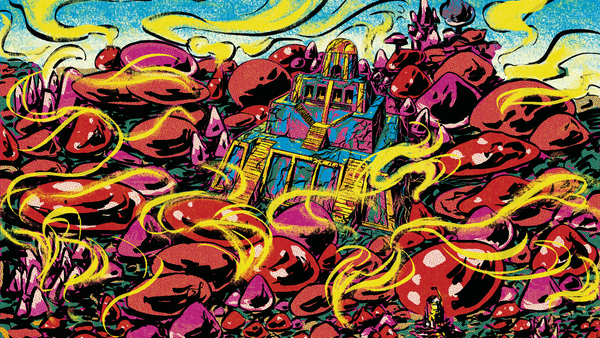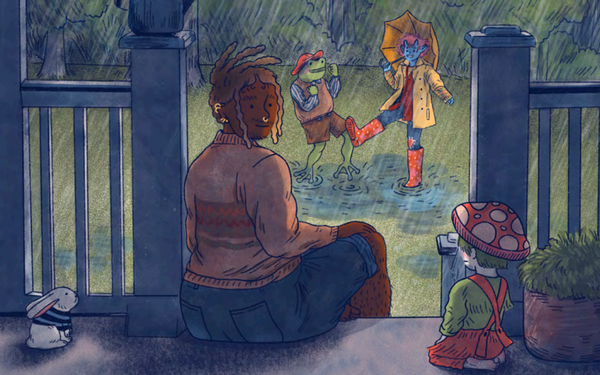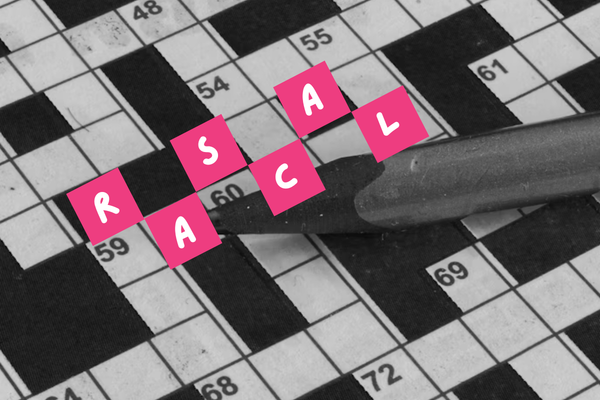Fear of Hights
And our fantasy heartbreaker predictions.

Thomas returns for Episode 22 of Rascal Radio Hour to discuss the two chunky investigations he produced since we last had him in front of a microphone. Zatu and Brandfox are not only depressingly common stories within the tabletop industry but also criticially important ones to tell. We talk inside baseball regarding how we structure stories and what it means to center a specific person within a broad narrative.
The pair also discuss Wizards of the Coast's president, John Hight, and his weirdly specific love for AI — and why doesn't he ever mention Dungeons & Dragons except in the context of video games? Later, crowdfunding's place in the tabletop industry, two popular games failing to connect on the table, and why a small academic press got involved with fulfilling a famously late Kickstarter campaign.
Later, Thomas and Chase wonder about the place adventures, supplements, and splatbooks fill within the tabletop industry's commercial ecosystem, and then they predict where all of these fantasy heartbreakers will end up in one year's time.
You can find Rascal Radio Hour on Apple, Spotify, and all the other various podcatchers. Leaving a five-star review helps new listeners find our show and website. Since we eschew traditional advertising, these reviews and any word-of-mouth are genuinely a massive help — thank you!
Here's an excerpt:
Chase: The thing in this interview is that he also has said a lot about AI. This man is sort of just breathlessly positive on AI and its potential within the company and within both Magic: the Gathering and Dungeons & Dragons. Now, he does draw a line that everyone has to draw when talking about these games is — we're not gonna make AI art, but he still wants it to be a part of the company. How that actually looks it's a little bit vague because like any good president he just sort of doesn't have a lot of actionable ideas. But let me just let me read a quote here from Hight in the interview on gameindustry.biz:
"Is this displacing the human soul spirit creativity in doing it? Because we don't want derivative work. We want that innovation. We want things that people have dreamt up" ... "But on the other hand, is it allowing us to explore different things? Is it allowing us to take the drudgery out of those things? For instance, generating an audio performance so that a writer can hear their words before we go into the recording studio, I think is going to help us make those recording sessions go a lot faster and smoother."
Thomas: Wow. Just completely made up example, right?
Chase: His other made up example I have read him use in two other interviews, Thomas: he wants AI to figure out dynamic difficulty.
"Right now it kind of stinks talking about dynamic difficulty. "I'm pretty good at puzzle solving, but I'm kind of crap these days on dexterity stuff, and yet I like games that have both. So wouldn't it be great if the AI was analysing a little bit about how I'm playing?"
Thomas: He's describing technology that exists. It's not like this is AI usage before it became Gen AI, right? This is like when we talked about like playing against a computer, and we'd call it 'playing against the AI.' This is like, man, wouldn't be cool if we could do the thing we've been doing for 20 years.
Chase: If you read video game journalism, they talk about this as an accessibility issue. You need to have sliders or functions or some sort of granular thing in a video game that allows you to change how the game functions so that it meets your dexterous or mental needs. If you're someone who's not good at puzzle solving, but you like the world, you can do that. If you're like Hight and you like puzzles, but apparently your old CEO fingers just aren't working the way they used to, you can tone down the platforming. That is a very reasonable thing to do. It is not reasonable to say, I'm gonna get an AI to do it.
Thomas: Just thinking about platforming, solutions to this have not been perfect. But I remember those games where you take a jump three times, and if you miss them, when you when the game restarted you'd be on the platform that you're trying to jump to. They would restart you there so that you didn't have to make the jump the fourth time. You can already do that!
Chase: What he wants is this weird sort of dream that a lot of AI tech evangelists preach: it's going to be seamless and beautiful and perfect. It won't feel like a solution. It won't feel like the game doing that feels-bad thing, where it's just like, hey, you've spent 15 minutes slapping your head up against this wall. Do you want to be invincible for a little bit? Do you wanna skip it? And you're just like, no, I'm not bad at the game. I'm not a fucking baby! But instead he wants the game not to prompt him.
He wants the game to understand, to analyze that he is a baby and give him baby game without him having to face that sort of reality. But unfortunately, that's not how AI works right now. It's sloppy and messy and bad and extractive. And it's just not gonna do this thing.





